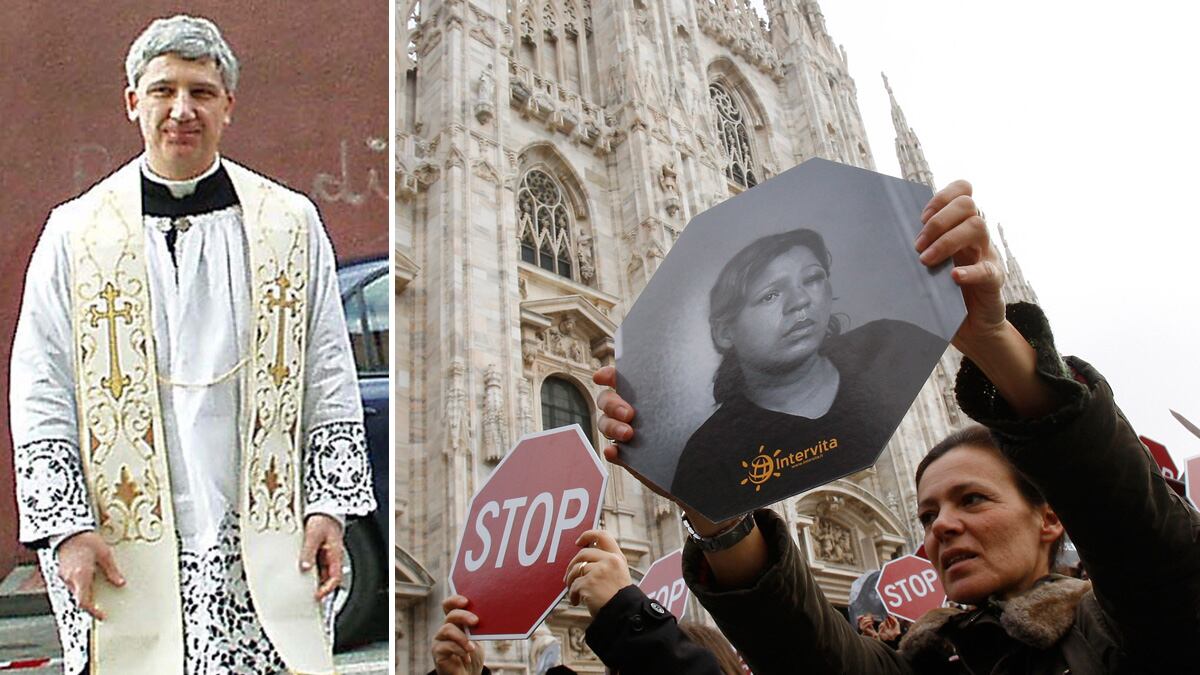It’s no surprise that misogyny appears to be alive and well in certain corners of Catholic Italy, where women are hardly viewed as men’s equals. But in the town of Lerici, near Turin, parish priest Father Piero Corsi sparked unprecedented outrage this Christmas, when he chose the delicate issue of femicide, or the killing of women in domestic disputes, as his Christmas bulletin theme.

Thus far in 2012, 120 women have been killed in domestic disputes in Italy, a third more than last year. Last June the United Nations Human Rights Council urged Italian leaders to combat domestic violence by putting the issue on the national agenda, pointing out that domestic violence in Italy was more prevalent than any other type of violence in the country. According to the domestic-violence hotline, Telefono Rosa, one woman is killed every two days in Italy by a man who once loved her. “This is an atrocity that can no longer be tolerated in a civilized country,” Maria Gabriella Carnieri Moscatelli, head of Telefono Rosa, told The Daily Beast.
Most analysts attribute the spike in violence to the changing role of women in society and a new law that has made violent crimes, once considered acts of passion, easier to prosecute as standard murders. Corsi had a different interpretation. In his annual letter to his parishioners, which he affixed to the church bulletin board on Christmas Eve as he does every holiday season, the priest blamed the problem squarely on women themselves. "Is it possible that men have turned randomly crazy all of a sudden?” he wrote. “We don't believe so. The point is that more and more women provoke, fall into arrogance, believe they are too independent and exacerbate tensions. They trigger the worst instincts, leading to violence and sexual abuse. They should consider self-examination and ask the question: did we ask for it?"
ADVERTISEMENT
Corsi also wrote that women are becoming far too confident, “leaving the children to play alone, not keeping a tidy house and serving cold suppers and fast food.” He wrote that a man can’t help but to lose his wits when his clothes aren’t clean and ironed, or if the house is not neatly organized, underscoring the sad fact that in Italy, most household chores are still the sole responsibility of the woman, whether she works outside the home or not. He also blamed women’s fashion choices as a trigger for violence: “How often do we see girls and even mature women walking on the streets in provocative and tight clothing?" he wrote.
The letter appears to be a badly misinterpreted take on “Mulieres Dignitatem,” Pope John Paul II’s 1988 apostolic treatise on the dignity of women, which sought to define the Catholic Church’s take on gender equality by setting strict limits on women’s roles in the church and at home.
Corsi’s letter went viral in Italy after several parishioners were offended and sent photos of the letter to the media. Corsi’s parish did not return a call for comment, but when approached by a RAI Radio reporter to clarify what he meant, Corsi reportedly said: "I don't know if you are homosexual or not, but what do you feel when you see a naked woman? Is that not the woman's form of violence to unveil herself that way?"
Since Corsi posted the letter, a dialogue about gender—one long ignored in Italy—has ensued. The letter caused enough outrage that the bishop of nearby La Spezia ordered that it be removed from the church board and has asked Corsi to refrain from commenting on the matter. Even the Vatican quickly sought to distance the church in Rome from Father Corsi’s missive. “There is widespread often dramatic violence against women and you can not think at all that it's the fault of women themselves,” Monsignor Vincenzo Paglia, the president of the Vatican’s Congregation for the Family, told Vatican Radio on Thursday. “We all have responsibility for what we say, and words are often heavy.”
For some of Corsi’s critics, that’s not enough. Moscatelli is calling on both outgoing prime minister Mario Monti and the pope to intervene by reeducating men about equality. “We believe Father Corsi’s message is an incitement to violent behavior against women because it offers an unheard-of motivation for criminal acts against them,” said Moscatelli. “In Italy, which has the highest number of femicides in Europe and a very high level of domestic violence, an episode like this is no longer tolerable.”






